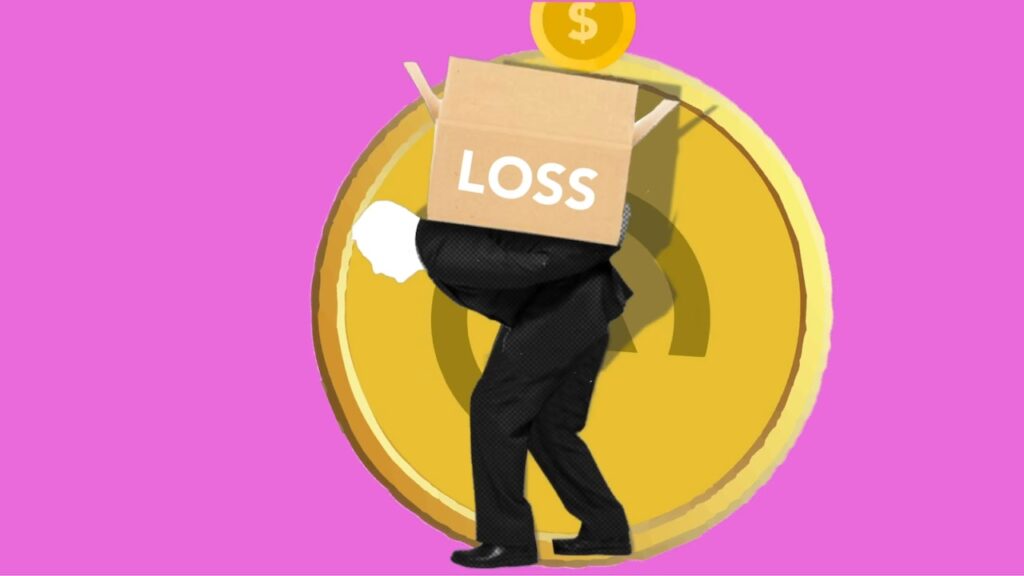Investing can be an exciting venture, filled with the potential for growth and financial security. However, it is not without risks. Sometimes, despite careful research and planning, investments can incur losses. When this happens, it is important not to panic or give up hope. Instead, take a step back, assess the situation, and develop a plan to recover from those losses. In this blog post, we will explore effective strategies to help you bounce back from investment losses and regain your financial footing.
Understand That Losses Are Part of the Game
Investment losses can be disheartening, especially when you’ve put in time and effort to make the best decisions. However, it is crucial to remember that losses are an inherent part of investing. Even the most experienced investors experience setbacks. Instead of dwelling on the negative, view losses as learning opportunities. Analyze what went wrong, identify any mistakes made, and use that knowledge to avoid similar pitfalls in the future.
Learn from the Experience
To truly recover from investment losses, it is essential to reflect on the experience and learn from it. Take the time to assess why the investment didn’t perform as expected. Was it due to factors beyond your control, such as a market downturn, or were there errors in judgment or research on your part? By identifying the specific reasons behind the losses, you can gain valuable insights that will inform your future investment decisions. Learning from your mistakes can help you avoid repeating them and enhance your chances of success moving forward.
Reevaluate Your Risk Tolerance
Investment losses can shake your confidence and make you question your risk tolerance. It’s natural to feel more cautious after experiencing setbacks. However, it’s important not to let fear dictate your investment strategy. Take this opportunity to reassess your risk tolerance and modify your approach accordingly. If you find that you are uncomfortable with high-risk investments, consider shifting your portfolio towards more conservative options. On the other hand, if you realize that you can handle a higher level of risk, be open to exploring opportunities that may offer greater potential returns.
Diversify Your Portfolio
One effective way to recover from investment losses is to diversify your portfolio. By spreading your investments across different asset classes, industries, and geographical regions, you can mitigate the impact of any single investment’s poor performance. Diversification helps ensure that losses from one investment do not wipe out your entire portfolio. Through diversification, you can potentially increase your chances of having some investments perform well, which can help compensate for any losses incurred.
Adopt a Long-Term Perspective
Investing is a long-term journey, and setbacks are just bumps along the road. Keep in mind that market fluctuations are inevitable and often temporary. Instead of obsessing over short-term losses, focus on the long-term potential of your investments. By adopting a patient and disciplined approach, you allow your investments more time to recover and potentially thrive. Remember that successful investing is not about avoiding losses altogether but rather about achieving overall growth and net positive returns over the long run.
Seek Professional Guidance
If you find yourself overwhelmed or unsure of how to rebound from investment losses, it may be helpful to seek professional guidance. Financial advisors or investment consultants can provide valuable insights and help you develop a tailored recovery plan based on your specific circumstances. They can review your portfolio, assess your risk tolerance, and guide you towards investments that align with your goals. Working with a professional can help you regain confidence and ensure that you are making informed decisions moving forward.
Stay Informed and Educate Yourself
To become a resilient investor, it is essential to stay informed and continually educate yourself about the intricacies of investing. Attend seminars, read investment books, follow reputable financial news outlets, and participate in online communities or forums where you can learn from experienced investors. This continuous learning process will equip you with the knowledge and tools necessary to make informed investment decisions and recover from losses more effectively.
Patience and Perseverance Pay Off
Recovering from investment losses is not an overnight process. It requires patience, perseverance, and a steadfast commitment to your financial goals. Avoid making rash decisions or succumbing to emotional impulses. Instead, stick to your recovery plan and stay focused on your long-term objectives. Remember that even in the face of losses, successful investors remain resilient and steadfastly work towards their goals.
In conclusion, investment losses are an unfortunate reality of the investing journey. However, with the right mindset and strategies, it is possible to recover and bounce back stronger than ever. Embrace losses as learning opportunities, reevaluate your risk tolerance, diversify your portfolio, maintain a long-term perspective, seek professional guidance if needed, and continuously educate yourself. By following these steps and staying committed to your financial goals, you can not only recover from investment losses but also position yourself for greater success in the future.
Remember, successful investing is a lifelong journey that involves both ups and downs. As the saying goes, it’s not about how many times you fall, but how many times you get back up that counts. So, stay resilient, stay focused, and keep striving for financial success!




